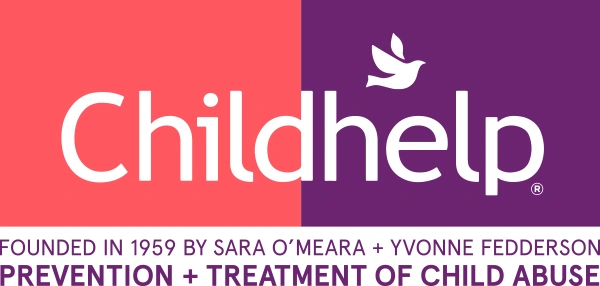Information on Child Abuse
Following is a list of Web sites containing useful information on child abuse as well as effective parenting. Many of the organizations who sponsor the sites use offer additional resources such as consultation, training, research, advocacy, or dissemination of information on child abuse.
ALCS Training Center
In homes where there are small children, safety is an important issue. Understanding basic first aid and how to apply it according to the injury and age of the child is critical and can save the life of their child.
Center for Effective Parenting
Provides helpful parenting information.
Child Care Aware
Committed to helping parents find the best information on locating quality child care and child care resources in their community.
Child Welfare League of America
Child Welfare League of America National Data Analysis System CWLA, in cooperation with the nation’s state child welfare agencies, provides a comprehensive, interactive child welfare database. Internet users can create customized tables and graphs, as well as access to information on child abuse.
Child Welfare Information Gateway
Child Welfare Information Gateway connects professionals and concerned citizens to timely, essential information and resources targeted to the safety, permanency, and well-being of children and families.
Child Trends Data Bank
Source for the latest national trends and research on over 100 key indicators of child and youth well-being.
Children’s Action Alliance
Helps promote the well-being of children and their families through research, policy development, media campaigns and advocacy.
Children’s Defense Fund
Mission is to ensure every child a Healthy Start, a Head Start, a Fair Start, a Safe Start, and a Moral Start in life.
Children Now
Information on child abuse and on making children the top public policy priority.
Circle of Parents
Network of parent-led self-help groups where parents and caregivers can share ideas, celebrate successes, and address the challenges surrounding parenting.
Defend Young Minds
Stay current on parenting strategies and defend your kids from the latest digital threats including pornography.
DOVES Network
DOVES Network’s overarching goal is to reduce traumatic stress symptoms while overall improving the functioning and development of adolescents that’s been exposed to the trauma impact of domestic and sexual violence.
Enough Abuse
The Enough Abuse Campaign is a grassroots movement gaining momentum across the country providing adults and communities with the knowledge and skills they need to put an end to the silence of abuse.
Focus Adolescent Services
Resources on Teen and Family Issues. Topics include anger and violence; self injury such as carving, branding and marking; and abuse.
Goodwill Community Foundation
This tutorial is designed for any parent or guardian who wants to learn how to keep their kids safe online.
G.W. Medical Publishing
G.W. Medical Publishing is a leading clinical and forensic publisher serving the medical, legal, social service, and law enforcement communities with the resources they need to combat child abuse, sexual assault, sexual exploitation, domestic violence, child trafficking, and other maltreatment.
Kids Count Data Book
Project by the Annie E. Casey Foundation to track status of children in the United States.
National Center for Missing & Exploited Children
NCMEC leads the fight against abduction, abuse, and exploitation – because every child deserves a safe childhood.
National Center for Missing & Exploited Children – CyberTipline
NCMEC’s CyberTipline is the nation’s centralized reporting system for the online exploitation of children.
MedlinePlus
A service of the U.S. National Library of Medicine and the National Institutes of Health.
My Tutor
There are lots of common issues that you can help your teen with if you have the right tips. Keep reading for a break-down of some key pain-points, and what you can to do help as a parent.
National Data Archive on Child Abuse
Exchange among researched in child maltreatment field.
Parents Anonymous
The nation’s oldest for information on child abuse prevention.
Prevent Child Abuse America
Dedicated to providing information on child abuse and inspiring hope to everyone involved in the effort to prevent the abuse and neglect of children.
Respect in Sport
Respect in Sport is an online bullying, abuse, harassment and neglect prevention program for coaches and community leaders.
Safe Environment for Every Kid (SEEK)
SEEK aims to strengthen families, support parents and parenting, and thereby promote children’s health, development and safety — and help prevent child abuse and neglect.
Sleep.org
This guide includes current recommendations from leading sleep experts, as well as tips for new parents to ensure their baby gets enough rest each night.
Stand for Children
Advocate for improvements to and funding for programs that give every child a fair chance in life.
TeensHealth
Created by The Nemours Foundation’s Center for Children’s Health Media, TeensHealth provides teens and families with up-to-date, jargon-free advice about health, relationships, and growing up. Topics include issues such as depression and self-cutting, abuse in the family, and safety basics such as internet safety.
U.S. Department of Health and Human Services, Children’s Bureau
Government site featuring information on child abuse, statistics, and resources related to child welfare.
Zero to Three
Publications, reference guides to programs, projects and professional developmental services promoting the healthy development of our nation’s infants and toddlers.
For more information on child abuse, visit the Childhelp Info Center.
Information about Adverse Childhood Experiences (ACEs)
Dr. Nadine Burke Harris – TEDTalk
Pediatrician Nadine Burke Harris explains that the repeated stress of abuse, neglect and parents struggling with mental health or substance abuse issues has real, tangible effects on the development of the brain.
Number Story
ACEs are Adverse Childhood Experiences. Our ACE history counts experiences of abuse, neglect and household challenges that happened to us as children. But that number does not define us. It is simply an entry point to our own personal story.
